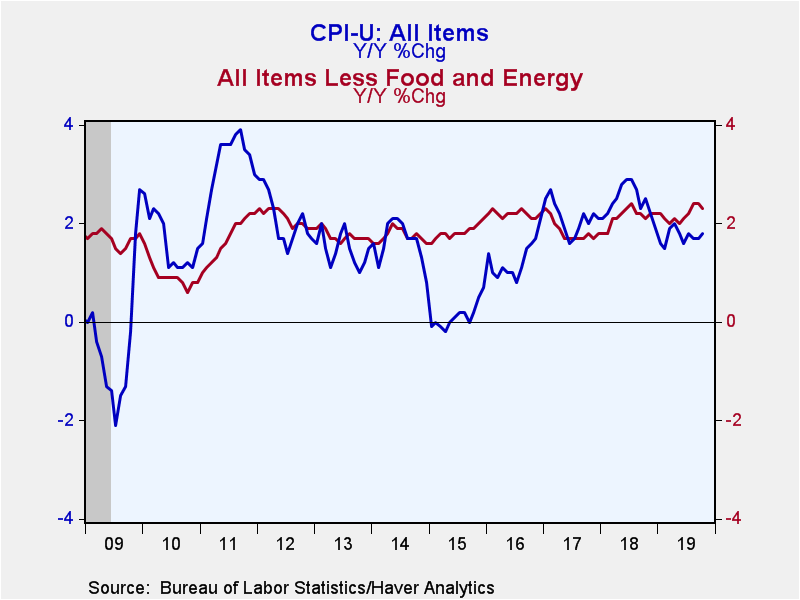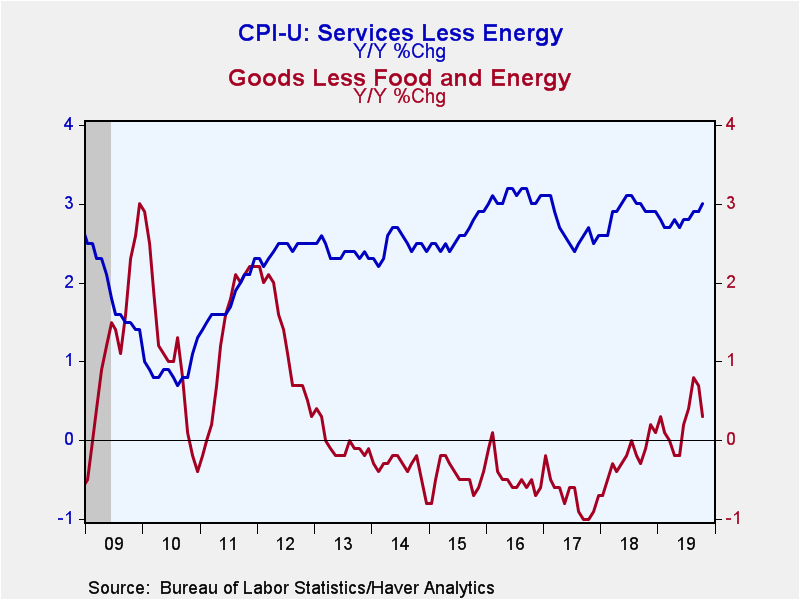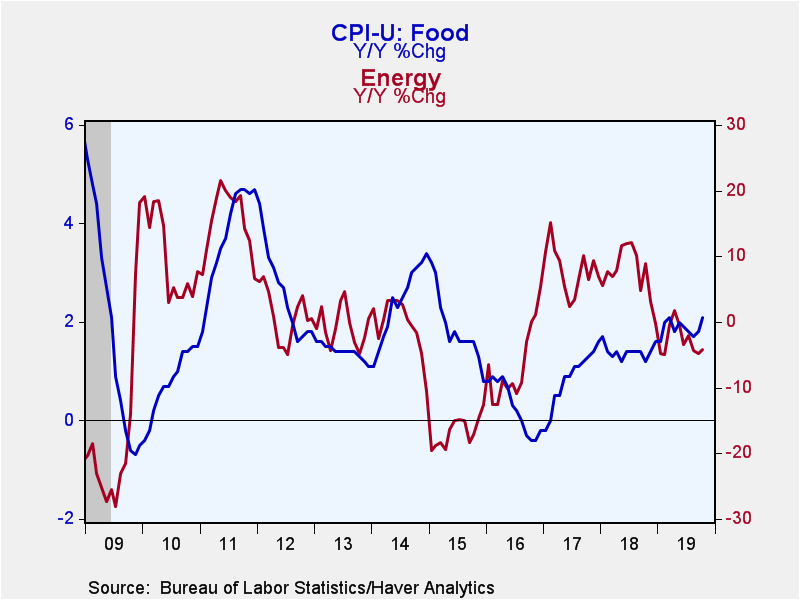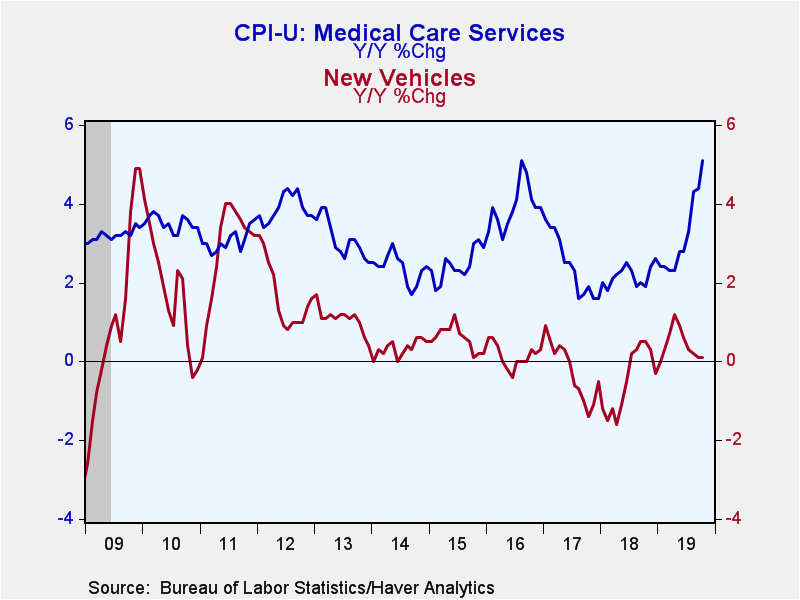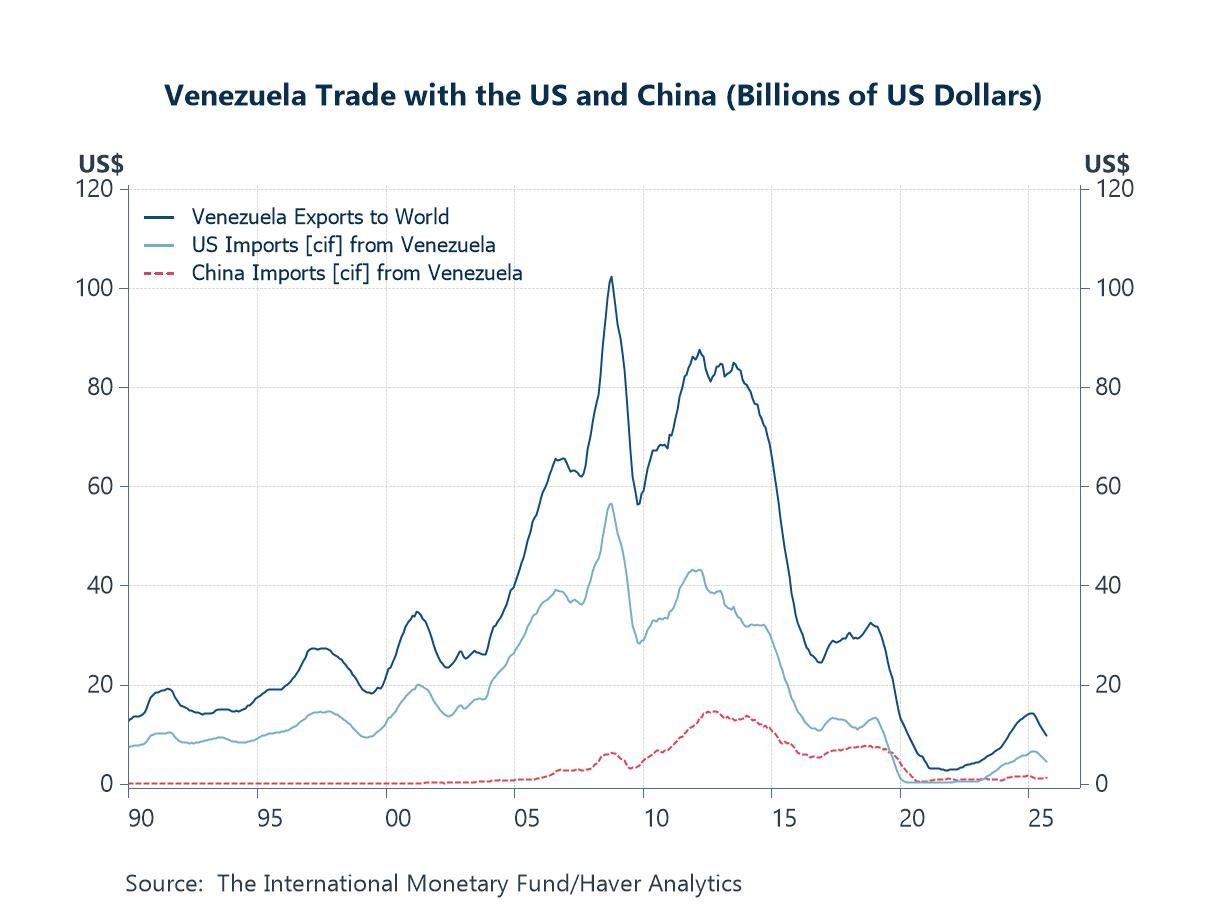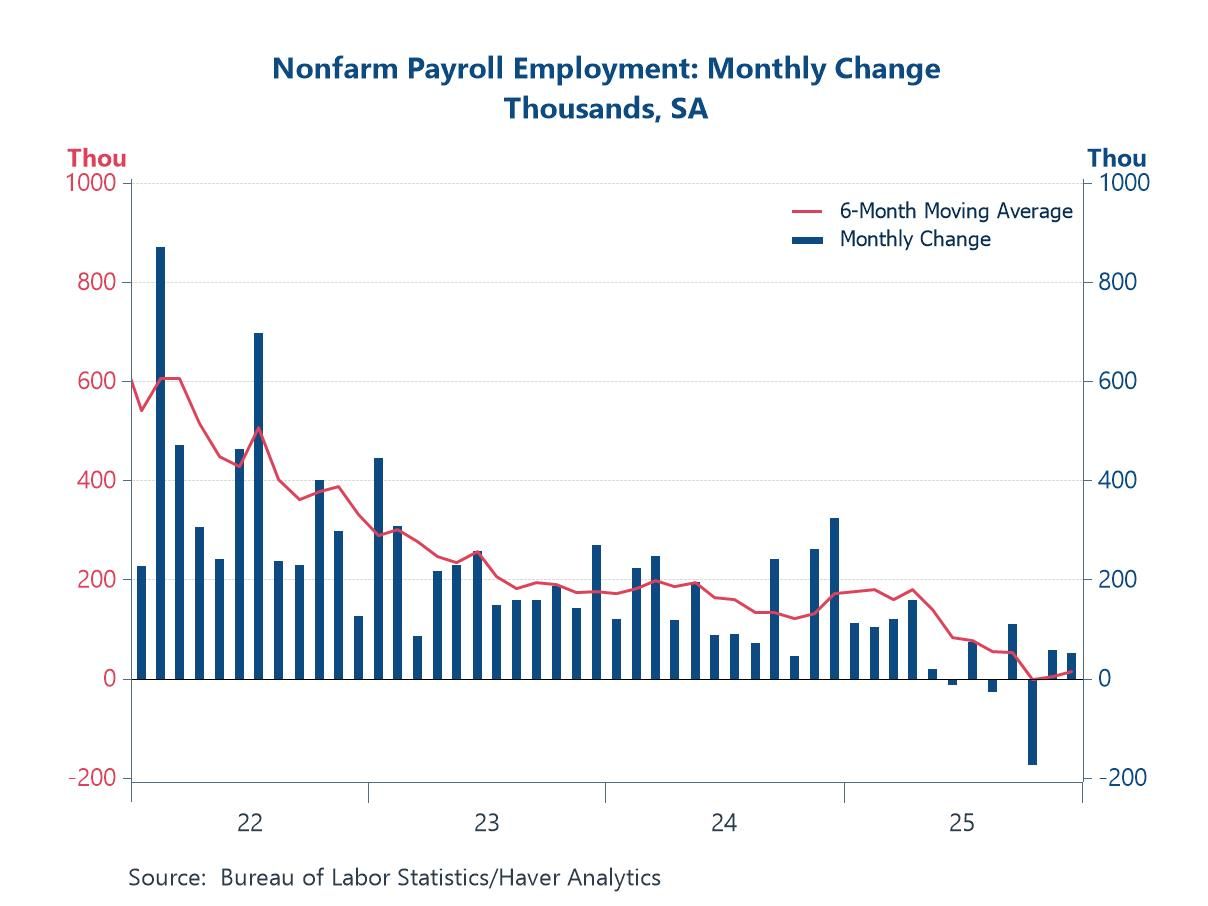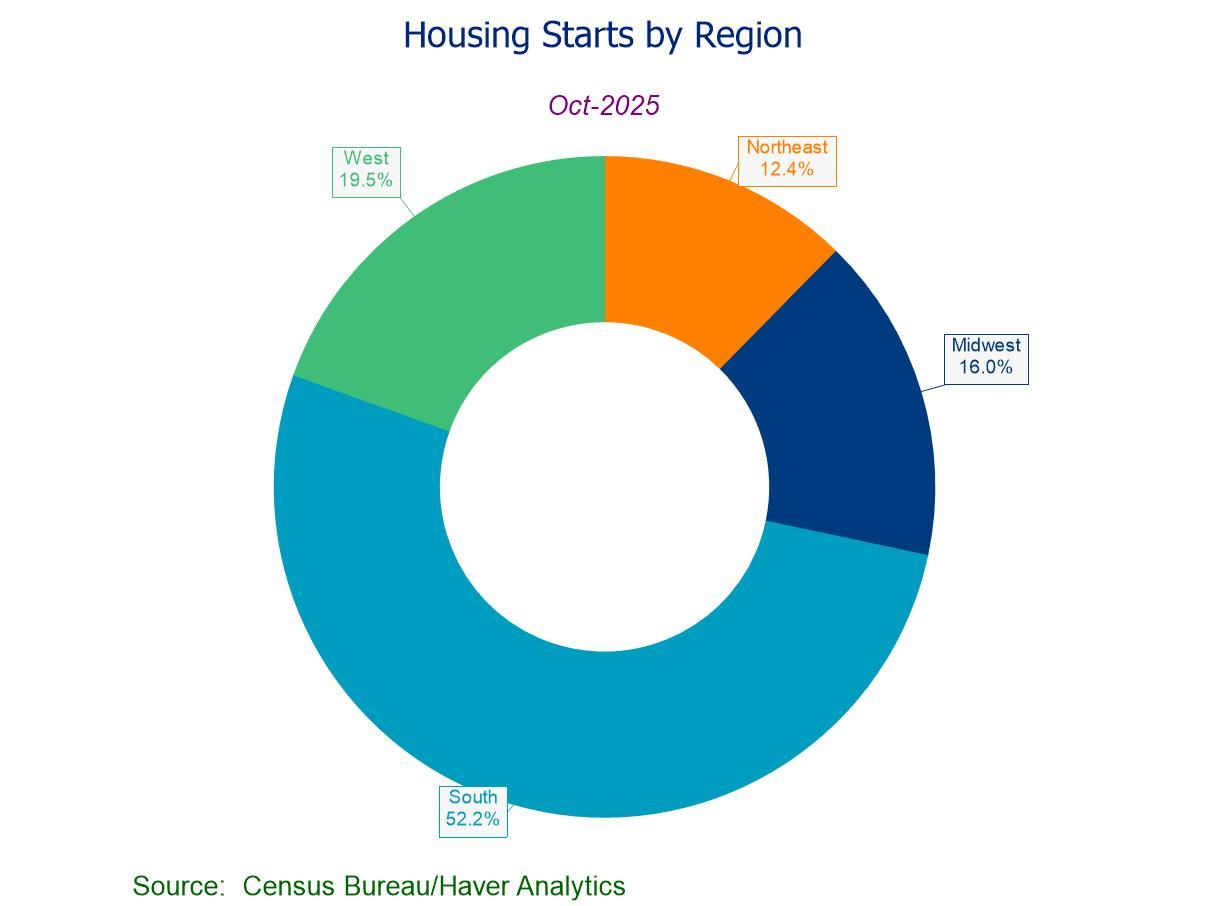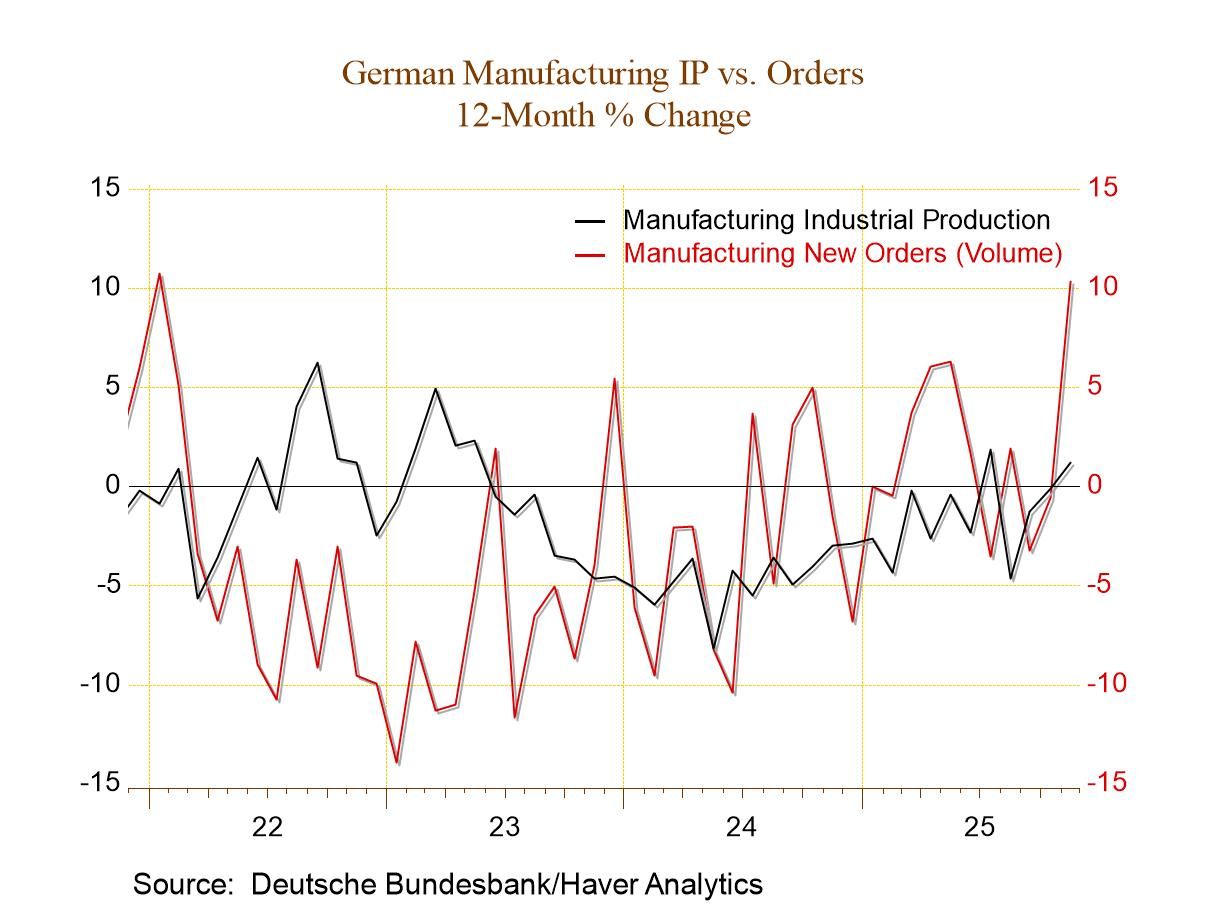 Global| Nov 13 2019
Global| Nov 13 2019U.S. CPI Firms as Energy Prices Strengthen
by:Tom Moeller
|in:Economy in Brief
Summary
The Consumer Price Index increased 0.4% (1.8% y/y) during October following stability in September. It was the largest increase since March. Expectations had been for a 0.3% rise in the Action Economics Forecast Survey. The CPI [...]
The Consumer Price Index increased 0.4% (1.8% y/y) during October following stability in September. It was the largest increase since March. Expectations had been for a 0.3% rise in the Action Economics Forecast Survey. The CPI excluding food & energy rose an expected 0.2% (2.3% y/y) following a 0.1% uptick.
Providing strength to consumer price inflation last month was a 2.7% increase (-4.2% y/y) in energy prices. This followed declines during four of the prior five months. Gasoline prices increased 3.7% (-7.3% y/y), also following declines in four of the prior five months. Fuel oil prices improved 0.8% (-10.6% y/y) after similar weakness in earlier months. The cost of natural gas surged 2.4% (0.2% y/y) following a 0.7% decline. Electricity prices strengthened 1.6% (0.4% y/y) after remaining unchanged.
Services prices increased 0.2% (3.0% y/y) following four straight 0.3% monthly increases. Exhibiting strength last month were medical care prices which rose 0.9% (5.1% y/y) for the second time in three months. Recreation services costs also strengthened 0.9% (2.3% y/y) following a slight September decline. The cost of shelter edged 0.1% higher (3.3% y/y). The owners' equivalent rent of primary residences rose 0.2% (3.3% y/y) while rents of primary residences improved 0.1% (3.7% y/y). The cost of lodging away from home declined 3.8% (+2.0% y/y) after a 2.1% rise. Education & communication costs improved 0.2% (1.1% y/y). Transportation services prices rose 0.1% (0.8% y/y) but public transportation prices fell 0.5% (+1.4% y/y).
Consumer goods prices excluding food & energy weakened 0.1% last month following a 0.3% fall. The y/y rise of 0.3% compared to a 1.0% decline during October 2017. Education & communications goods prices declined 1.9% (-5.2% y/y) and added to a 1.2% September decline. Apparel prices were off 1.8% (-2.3% y/y) after a 0.3% slip. Prices of new vehicles weakened 0.2% (+0.1% y/y), down slightly for the fourth consecutive month. Furniture & bedding prices slipped 0.1%. To the upside, used car & truck prices surged 1.3% (1.4% y/y) on the heels of a 1.6% decline. Medical care goods prices improved 1.2% (1.0% y/y) after falling 0.6%. Household appliance prices gained 0.4% (-0.7% y/y). The 2.1% y/y increase compared to a 0.7% y/y decline as of August last year. Recreation goods prices improved 0.4% (0.7% y/y) after rising 0.2% in the prior two months.
Food prices rose 0.2% (2.1% y/y) in October after a 0.1% uptick. Fruit & vegetable prices strengthened 0.9% both m/m and y/y. Meat, poultry & fish prices rose 0.8% (1.7% y/y) and dairy product prices increased 0.1% (1.8% y/y). Cereal & bakery product costs slipped 0.1% (+1.5% y/y). Egg prices weakened 2.7% (-8.7% y/y). Nonalcoholic beverage prices declined 0.3% (+0.8% y/y).
The consumer price data can be found in Haver's USECON database with additional detail in CPIDATA. The Action Economics survey figure is in the AS1REPNA database.
The Economic Outlook is the title of today's testimony by Federal Reserve Chair Jerome H. Powell. It can be found here.
| Consumer Price Index, All Urban Consumers (% chg) | Oct | Sep | Aug | Oct Y/Y | 2018 | 2017 | 2016 |
|---|---|---|---|---|---|---|---|
| Total | 0.4 | 0.0 | 0.1 | 1.8 | 2.4 | 2.1 | 1.3 |
| Total less Food & Energy | 0.2 | 0.1 | 0.3 | 2.3 | 2.1 | 1.8 | 2.2 |
| Goods less Food & Energy | -0.1 | -0.3 | 0.2 | 0.3 | -0.2 | -0.7 | -0.5 |
| Services less Energy | 0.2 | 0.3 | 0.3 | 3.0 | 2.9 | 2.7 | 3.1 |
| Food | 0.2 | 0.1 | 0.0 | 2.1 | 1.4 | 0.9 | 0.3 |
| Energy | 2.7 | -1.4 | -1.9 | -4.2 | 7.5 | 7.9 | -6.6 |
Tom Moeller
AuthorMore in Author Profile »Prior to joining Haver Analytics in 2000, Mr. Moeller worked as the Economist at Chancellor Capital Management from 1985 to 1999. There, he developed comprehensive economic forecasts and interpreted economic data for equity and fixed income portfolio managers. Also at Chancellor, Mr. Moeller worked as an equity analyst and was responsible for researching and rating companies in the economically sensitive automobile and housing industries for investment in Chancellor’s equity portfolio. Prior to joining Chancellor, Mr. Moeller was an Economist at Citibank from 1979 to 1984. He also analyzed pricing behavior in the metals industry for the Council on Wage and Price Stability in Washington, D.C. In 1999, Mr. Moeller received the award for most accurate forecast from the Forecasters' Club of New York. From 1990 to 1992 he was President of the New York Association for Business Economists. Mr. Moeller earned an M.B.A. in Finance from Fordham University, where he graduated in 1987. He holds a Bachelor of Arts in Economics from George Washington University.


